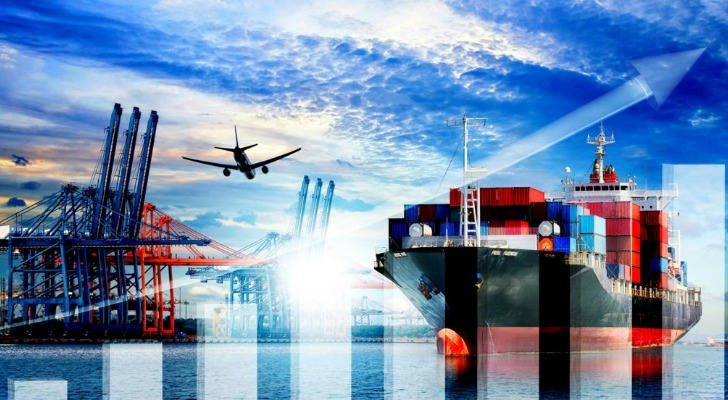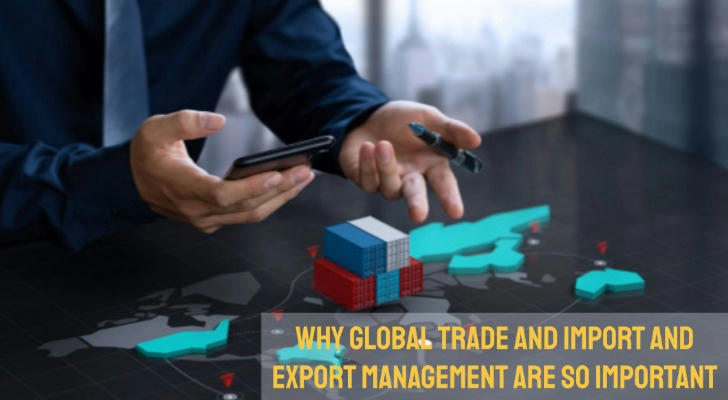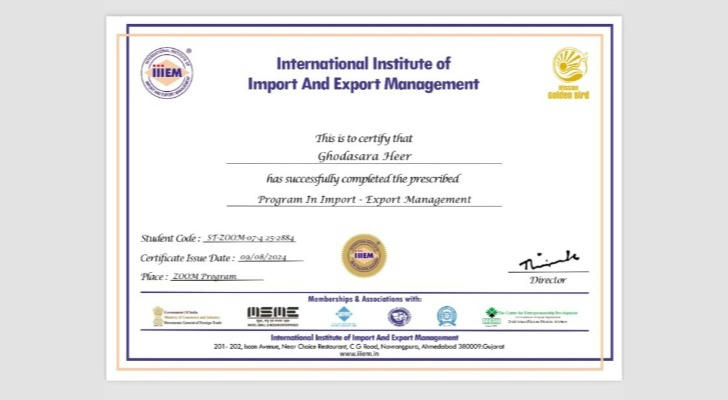How to Earn a Global Trade and Import-Export Management Certification on Alison
In today’s globalized economy, understanding international trade is more valuable than ever. According to the World Trade Organization (WTO), global merchandise trade grew by 3.5% in 2021, highlighting the increasing importance of cross-border commerce. Whether you're looking to start a career in global trade, expand your business internationally, or enhance your skills, obtaining a certification in global trade and import-export management can set you apart. Alison offers a comprehensive course that equips you with the essential knowledge to navigate international markets effectively. Let’s explore how this certification can benefit you and how to earn it.

Why Global Trade and Import-Export Management Matter

International trade plays a vital role in the global economy, influencing economic growth, job creation, and business expansion. According to the International Chamber of Commerce (ICC), world trade supports over 75 million jobs, and the demand for professionals with expertise in import-export management is steadily rising. With digital transformation making it easier for businesses to reach international markets, companies need skilled individuals who understand trade regulations, tariffs, logistics, and supply chain management.
By earning a Global Trade and Import-Export Management certification, you gain practical knowledge that can help you secure a job in international business, work with multinational companies, or even start your own import-export business. The course covers essential trade principles, compliance with international laws, and logistics strategies that are critical for success in the industry.
What You’ll Learn in the Course

This certification program provides a comprehensive understanding of global trade, covering key topics such as:
Fundamentals of International Trade – Learn about trade policies, economic benefits of trade, and the impact of globalization. According to the WTO, international trade has contributed to a 20% increase in global GDP since 1995, making it a driving force for economic growth.
Import-Export Processes – Understand the step-by-step procedures involved in importing and exporting goods, including customs regulations, trade documentation, and risk management.
International Trade Agreements and Regulations – Gain insights into global trade organizations such as the WTO and regional agreements like the United States-Mexico-Canada Agreement (USMCA). Knowledge of these agreements helps businesses optimize trade opportunities and reduce costs.
Financial Aspects of International Trade – Explore different payment methods, including letters of credit, international banking systems, and foreign exchange. The World Bank reports that international trade finance plays a crucial role in supporting global commerce, with trade transactions exceeding $20 trillion annually.
Shipping and Logistics – Learn about freight forwarding, customs clearance, supply chain management, and international shipping strategies. The International Transport Forum (ITF) estimates that global shipping volumes will continue to grow by 3-4% per year, emphasizing the importance of logistics expertise.
How to Enroll and What You Get
Enrolling in the Global Trade and Import-Export Management course on Alison is a straightforward process. Simply create an account on the platform, search for the course, and start learning at your own pace. The course is fully online, allowing flexibility for professionals and students alike.
Upon successful completion of the program and assessments, you will receive a globally recognized certification that validates your knowledge of international trade. This certification can be a valuable addition to your resume, demonstrating your expertise to employers and business partners. According to a report from the International Trade Administration, the demand for certified trade professionals has increased by 6% annually, making certification an asset in the competitive job market.

The Benefits of Getting Certified
Career Advancement – Many businesses seek professionals with expertise in global trade. Whether you are looking to secure a job in international business, logistics, or supply chain management, certification can help set you apart.
Business Growth Opportunities – Entrepreneurs and business owners looking to expand into international markets can use this knowledge to manage trade risks, optimize operations, and comply with global regulations. The World Bank notes that businesses engaged in international trade experience higher growth rates compared to those operating only in domestic markets.
Increased Earning Potential – Professionals working in global trade and logistics can command competitive salaries. According to the U.S. Bureau of Labor Statistics, international trade specialists earn between $55,000 and $120,000 annually, depending on experience and industry.
Industry Recognition and Networking – Holding a certification connects you to a network of global trade professionals, opening opportunities for collaboration, mentorship, and career growth.

Conclusion
In a world where international trade continues to shape economies, obtaining a Global Trade and Import-Export Management certification is a smart investment in your career or business. The course offers a structured approach to understanding key trade concepts, regulations, and logistics strategies. Whether you're seeking new job opportunities, aiming to expand your business, or looking to enhance your professional skills, this certification provides a solid foundation for success in global commerce. Start learning today and take the next step toward a rewarding career in international trade.
